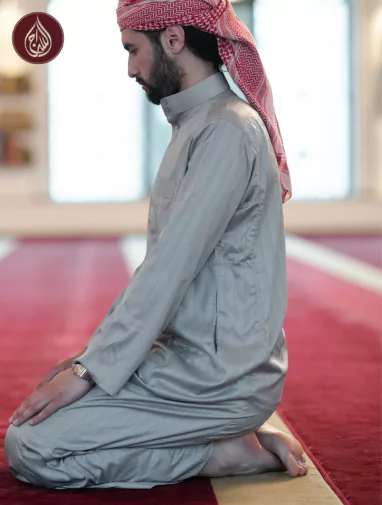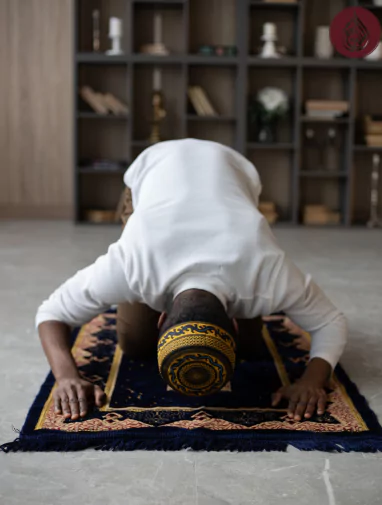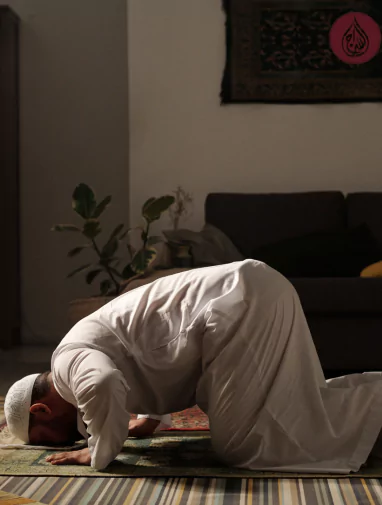Introduction: Embracing the Power of Tahajjud Prayer
Tahajjud prayer, a night prayer performed in the last third of the night, holds immense spiritual significance in Islam. It is a time for personal supplication, reflection, and seeking closeness to Allah. For Muslims, the practice of Tahajjud prayer is not only a way to connect with Allah but also a powerful source of spiritual growth in Islam. As-Siraj Charity Organisation plays an essential role in supporting the spiritual journey of Muslims, helping them remain steadfast in night worship in Islam.
In this guide, we will explore how to perform Tahajjud prayer, its benefits, and the importance of spiritual rewards of charity that come with it. We will also discuss how to stay motivated and consistent in your Tahajjud routines.
What is Tahajjud Prayer? A Spiritual Obligation
Tahajjud prayer is one of the most revered forms of night prayers in Islam. It is highly recommended for Muslims who want to strengthen their connection with Allah. Tahajjud is performed after the Isha prayer and before the Fajr prayer, in the last third of the night, when the world is still and peaceful.
This prayer is not mandatory but is considered a spiritual obligation for those who wish to seek Allah’s forgiveness, mercy, and blessings. The Quranic references for Tahajjud emphasize its importance. Allah says in Surah Al-Isra, verse 79: “And from [part of] the night, pray with it, additional for you; perhaps your Lord will raise you to a praised station.”
Performing Tahajjud prayer demonstrates humility, dedication, and a sincere desire for spiritual growth in Islam.
The Benefits of Performing Tahajjud Prayer
The benefits of night prayers are numerous. Firstly, Tahajjud prayer offers spiritual rewards like no other. It is a time to seek forgiveness, build a stronger bond with Allah, and purify one’s soul. Muslims who regularly perform Tahajjud are promised immense rewards in the afterlife.
Furthermore, the spiritual benefits of night worship go beyond the physical realm. Studies have shown that the practice of waking up for prayer improves mental clarity, reduces stress, and increases emotional resilience. It helps in purifying the heart and developing a closer relationship with Allah. Tahajjud and forgiveness go hand-in-hand, as it is a time to ask for Allah’s mercy and seek His help for both this world and the hereafter.
The Best Time for Tahajjud Prayer: When to Begin and End?
The best time to perform Tahajjud is during the last third of the night, which is the most virtuous and spiritually powerful time for Islamic prayers at night. In the hadith, it is mentioned that Allah descends to the lowest heaven during this time, asking who is seeking His mercy, who is asking for forgiveness, and who is in need of His help. This is a powerful reminder of the importance of waking up for night prayer.
To calculate the best time to perform Tahajjud, divide the time from Isha prayer until Fajr into three parts. The last third of this period is when Tahajjud prayer should be performed. This is a time when the world is quiet, and one’s heart is more focused and receptive to personal supplication.
Steps to Perform Tahajjud Prayer Correctly
When learning how to perform Tahajjud prayer, it’s important to follow the proper steps to ensure that the prayer is performed correctly and with sincerity. The first step is wudu (ablution), ensuring that you are cleanliness for prayer.
After performing wudu, begin with two rak’ahs (units of prayer) of Tahajjud and gradually increase the number of rak’ahs. The ideal is to pray 8 rak’ahs, but even 2 rak’ahs are sufficient for beginners. After the prayer, Du’a in Tahajjud is highly encouraged, as it is the best time for supplication. The sincerity of your heart and personal supplication during this prayer is crucial.
Making the Most of Tahajjud Prayer: Tips for Consistency
Consistency is key to making Tahajjud prayer a regular part of your life. The hardest part of performing Tahajjud is waking up in the middle of the night. To stay consistent with Tahajjud, it is helpful to sleep early, make an intention to wake up, and set an alarm. Gradually, you will build a habit, and the process will become easier.
Tahajjud motivation comes from remembering the rewards and the spiritual growth in Islam that comes from it. Keep in mind that even small steps, like praying two rak’ahs, are rewarded by Allah. The key is not to give up, even when it feels difficult to wake up for prayer.
How As-Siraj Charity Supports the Spiritual Community
As-Siraj Charity Organisation plays a crucial role in supporting Muslims in their spiritual journey. The charity focuses on providing the tools and resources necessary for Muslims to strengthen their faith, including Tahajjud routines. Through educational programs, support for Islamic charity organizations, and providing community support in Islam, As-Siraj helps individuals stay motivated in their worship.
Through initiatives like distributing prayer mats, organizing spiritual workshops, and offering guidance, As-Siraj’s role in supporting Muslims cannot be overstated. They also provide practical advice and motivation to help those struggling with consistency in night prayer.
The Role of Du’a in Tahajjud Prayer: How to Make Your Prayers More Effective
Du’a during Tahajjud is a powerful aspect of the prayer. It is a time to ask Allah for guidance, forgiveness, and blessings. Du’a supplications during night prayer are an opportunity to express gratitude, request help, and offer personal supplications for yourself and others. It is also a chance to pray for those in need, whether they are facing illness, hardship, or distress.
How to make your Tahajjud prayer more effective is a matter of sincerity and focus. Ensure that your du’a is heartfelt and ask for what is best for you, your family, and the community. The reward of Tahajjud prayer lies in the devotion and connection with Allah during these moments.
Common Mistakes to Avoid When Performing Tahajjud
While performing Tahajjud prayer is a highly rewarding act, it is easy to fall into certain mistakes. One common mistake is rushing through the prayer, without proper focus. The purpose of night prayers is to connect with Allah, and this requires sincerity and mindfulness.
Another common mistake is not making an intention (niyyah) before performing the prayer. Without a clear intention, the prayer loses its spiritual depth. Lastly, Tahajjud and forgiveness are linked, so ensure that you use the prayer to ask for forgiveness for past mistakes, seek mercy, and purify your heart.
Encouraging Others to Perform Tahajjud Prayer: Share the Blessings
Encouraging others to perform Tahajjud prayer is a form of Islamic charity. When you inspire someone else to wake up and pray, you are sharing in the rewards of their efforts. Praying for forgiveness through Tahajjud and motivating others to do the same spreads the blessings of this beautiful prayer.
Tahajjud motivation is often strongest when it is shared. Share your experience with friends, family, and your local community, and remind them of the spiritual rewards of charity and how Tahajjud and charity in Islam are interconnected. This will help create a supportive environment for night prayers.
FAQs about Tahajjud Prayer
1. What is the best time to perform Tahajjud prayer?
The best time to perform Tahajjud prayer is during the last third of the night, after Isha and before Fajr prayer. This time is spiritually significant, as Allah descends to the lowest heaven to answer prayers.
2. How many rak’ahs should be performed for Tahajjud?
Tahajjud prayer typically consists of two rak’ahs, but you can pray more if you wish, usually up to eight rak’ahs. The key is sincerity and focus during the prayer.
3. What are the benefits of Tahajjud prayer?
Performing Tahajjud prayer brings spiritual rewards, helps purify the soul, and strengthens your connection with Allah. It also provides an opportunity for personal supplication and forgiveness.
4. How can I stay consistent with Tahajjud prayer?
To stay consistent with Tahajjud, sleep early, set an alarm, and make a clear intention to wake up. Gradually, you will form a routine, making it easier to incorporate into your life.
5. Can I make Du’a during Tahajjud?
Yes, Du’a in Tahajjud is highly recommended. It’s a time when Allah is closest, and you can ask for guidance, forgiveness, and anything you wish with sincerity.
Conclusion: Embrace the Blessings of Tahajjud Prayer
In conclusion, Tahajjud prayer offers a powerful opportunity for Muslims to seek closeness to Allah, especially during the last third of the night. By following the steps for performing Tahajjud, staying consistent, and engaging in Du’a during night prayer, you will experience the immense spiritual benefits of night worship.
Remember, the rewards of Tahajjud and charity go hand-in-hand. As-Siraj charity provides valuable support for Muslims in their spiritual growth in Islam, and by connecting with the community, you can encourage others to benefit from night prayers as well. The key to success is consistency and sincerity, which will lead to a stronger connection with Allah and a more fulfilling spiritual life.






